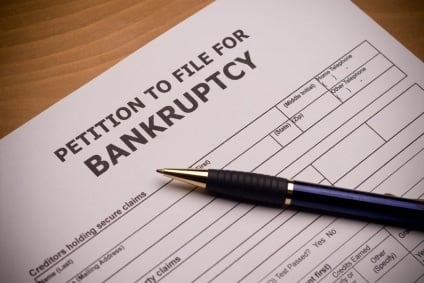Your Car In Bankruptcy in Bellevue
 When you’ve been practicing bankruptcy law for 30 years, you understand your clients' needs. At the top of every person’s mind when they file for bankruptcy is whether or not they can keep their car.
When you’ve been practicing bankruptcy law for 30 years, you understand your clients' needs. At the top of every person’s mind when they file for bankruptcy is whether or not they can keep their car.
We totally understand. In Bellevue, public transportation isn't the most reliable option. Plus, your car is more than just a way to get from here to there. It's how you get to work, take your kids to school, and handle day-to-day life.
So, our Bellevue bankruptcy attorneys make it a top priority to fight for your ability to keep your car throughout the bankruptcy process. No matter which bankruptcy chapter you file, we'll walk you through your options, explain how exemptions work, and make sure your rights are protected every step of the way.
We live and work right here in King County, which has limited public transportation options, so we understand how essential it is to have a car. This also makes us familiar with the commute challenges in Lake Hills, the parking concerns around Bellevue Square, and how tricky it can be when you're behind on payments near Downtown Park or Clyde Hill. Our team has helped people across neighborhoods like Newport Hills, Crossroads, Bridle Trails, Woodridge, and Eastgate keep their vehicles.
We also know the ins and outs of local filings through the King County Superior Court. You're not alone, and you're not out of options. Our local Bellevue attorneys are here to help you keep your vehicle. Call our law offices for a free consultation now to get started.
Does Bankruptcy Stop Vehicle Repossession In King County?Yes, bankruptcy can stop vehicle repossession in King County. However, the protection depends on what type of bankruptcy you file for and where you are in the repossession process. If your car hasn't been taken yet, filing for bankruptcy triggers an automatic stay under 11 U.S. Code § 362, which immediately halts all collection efforts, including repossession. Even if the creditor already repossessed your car, there may still be a legal window to get it back, depending on how quickly you act and which chapter you file:
- Chapter 7 can temporarily delay repossession, but unless you can catch up on missed payments or reaffirm the loan, your lender may still repossess the vehicle once the case ends.
- Chapter 13 allows you to keep your car by creating a repayment plan, which lasts over 3 to 5 years, depending on income. During that time, you will catch up on missed payments and possibly even reduce what you owe depending on the vehicle's value.
If you're worried about losing your car, don't wait. Our Bellevue bankruptcy attorneys know the local court procedures in King County and how to use federal protections like the automatic stay to your advantage. We'll review your loan, financial situation, and bankruptcy options to help you make the right call.
Can I Keep My Car During Bankruptcy In Washington State?Yes, in many cases, you can keep your car during bankruptcy in Washington State, especially if you understand how exemptions and repayment plans work. Whether you file for Chapter 7 or Chapter 13 bankruptcy, your ability to keep your vehicle depends on the equity in your car, your payment history, and how much you owe. Washington allows you to use either state or federal bankruptcy exemptions to protect your vehicle, such as the RCW 6.15.010(1)(c)(ii) exemption, which lets you keep up to $15,000 in equity in one motor vehicle under state law.
Here's how it works under each type of bankruptcy:- Chapter 7: If your car's equity is within the exemption limit and you're current on payments, you can usually keep it. Otherwise, the trustee may sell the car to pay creditors.
- Chapter 13: You can keep your car regardless of its equity by including it in your repayment plan and making payments over 3 to 5 years.
If keeping your vehicle is a top priority, we'll walk you through the right legal strategy based on Washington State's laws and what fits your financial situation. Our Bellevue attorneys help individuals across King County every day protect what matters most, and your car doesn't have to be the first thing you lose.
Frequently Asked Questions About Cars And Bankruptcy In King CountyIf a lender takes your car after you filed for bankruptcy, they have violated the law under 11 U.S.C. § 362(k). In this case, we can go to court and fight to have the lender return your car. The court may even impose penalties or award damages for the wrongful repossession.
A: Will Chapter 7 bankruptcy stop a pending repossession?
Yes. Under 11 U.S.C. § 362(a), Chapter 7 bankruptcy triggers an automatic stay, which stops all collection actions, including repossession, immediately upon filing. Timing is everything, so we need to file before the repossession.
A: Possibly. Under 11 U.S.C. § 542(a) and 11 U.S.C. § 362, the automatic stay protects you, stopping all collection activity while you go through the bankruptcy process. It also offers us the legal grounds to demand the return of your vehicle, especially in Chapter 13.
A: A cramdown lets you reduce the loan balance to the car's current market value. Cramdowns are allowed under 11 U.S.C. § 506(a) if the car was purchased more than 910 days before filing (11 U.S.C. § 1325(a)(9)).
A: No. In Chapter 7, surrendering the car discharges the deficiency balance under 11 U.S.C. § 727(b). In Chapter 13, the balance becomes unsecured debt and can often be reduced or eliminated.
A: Yes. Even if you're just 30–60 days late, filing under 11 U.S.C. § 362 can stop repossession and give you time to cure the default through a Chapter 13 repayment plan.
Our Bellevue Bankruptcy Attorneys Will Protect Your Vehicle
Your car is essential to daily life here in Bellevue. Count on our King County bankruptcy attorneys to help you keep it. Learn how by calling our law offices now for a free consultation.
 Unless you have a very expensive car or multiple cars, most likely you can file a bankruptcy with no worries about being able to keep your car. If your car is paid off, you can probably claim a car exemption and keep it. The car exemption is around $3500 under both the state and federal laws. If you are using federal exemptions, you can stack up to $11,975 on top of the car exemption on a car or split this up between multiple cars as well. If you are a married couple filing bankruptcy, you can double the wildcard exemption.
Unless you have a very expensive car or multiple cars, most likely you can file a bankruptcy with no worries about being able to keep your car. If your car is paid off, you can probably claim a car exemption and keep it. The car exemption is around $3500 under both the state and federal laws. If you are using federal exemptions, you can stack up to $11,975 on top of the car exemption on a car or split this up between multiple cars as well. If you are a married couple filing bankruptcy, you can double the wildcard exemption.
If you are still making payments on a car, you can keep it in a Chapter 7 or Chapter 13 if you keep making the payments. You have to make these car payments directly in a Chapter 7. The car debt can be consolidated with other debt in a Chapter 13. You must keep up with the Chapter 13 payments and keep the car fully insured to keep it safe in a Chapter 13.
In a Chapter 7, the car finance company will want you to file a reaffirmation agreement. This agreement takes the car debt outside of the bankruptcy discharge, so if the car is repossessed after the bankruptcy you may end up still owing some of the car debt after it is sold at auction. If you do not file this reaffirmation agreement, the car company can repossess the car even if you are making payments. Some fianance companies will tell you they don’t enforce that part of the bankruptcy law. They just want the money. Some are strict about it. Of course, you should be especially careful that you keep the car fully insured if you’ve signed a reaffirmation.
Another option in a Chapter 7 is a redemption. A redemption allows a debtor to pay off the loan in the amount of the cars value. If you owe a lot more for a car than it is worth, this could be a good option. Some finance companies specialize in redemption loans.
The other option in both Chapter 7s and Chapter 13s is to surrender the car and walk away from the car loan. If you owe for a car that was repossessed a while ago, that debt is easily discharged.
 Washington State Attorneys Home
Washington State Attorneys Home











































